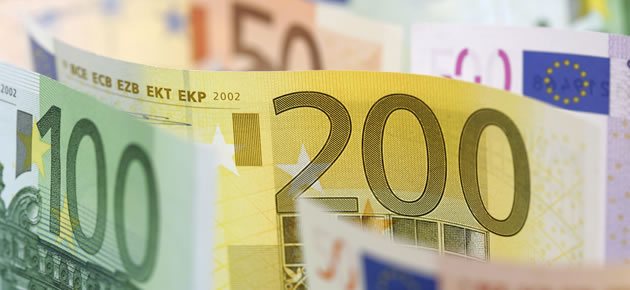In spite of the release of slightly disappointing data from New Zealand, the Euro lost ground against the ‘Kiwi’ overnight and hit a seven week low.
The common currency is experiencing broad-based weakness as a result of yesterday’s less-than-impressive ZEW economic sentiment survey for Germany.
The gauge showed a steeper than forecast decline in confidence, plunging from 43.2 in April to 33.1 in May.
As this report pointed to weakness in the Eurozone’s largest economy it added to the argument for the European Central Bank introducing additional stimulus in June and pushed the Euro lower.
The common currency was also adversely affected as Germany’s central bank intimated that it would support any stimulus introduced by the ECB in June.
As stated by currency strategist Raiko Shareef; ‘For years the Bundesbank has been the most trenchant opponent to extraordinary monetary policy measures. This reported shift in its mindset lends ECB President Draghi considerable support if he decides to cut interest rates in June, or even engage in quantitative easing.’
Overnight the Euro held declines against the New Zealand Dollar.
The South Pacific currency fluctuated modestly following the release of domestic retail sales figures but managed to maintain the higher ground against many of its counterparts.
Data compiled by Statistics New Zealand revealed that the volume of retail sales climbed by 0.7 per cent in the first three months of 2014, down from a positively revised gain of 1.4 per cent in the final quarter of last year.
Economists had forecast that sales would rise by 0.9 per cent quarter-on-quarter.
In the opinion of industry expert Tina Morrison; ‘Retail sales are increasing as consumer confidence remains perky in an expanding economy [but] figures for the fourth quarter were revised up to a seasonally adjusted gain of 1.4 per cent from the previously published 1.2 per cent increase, suggesting retail sales growth in the second half of 2013 was more robust.’
Movement in the New Zealand Dollar was modest and the commodity-driven asset was holding steady after Reserve Bank of New Zealand Governor Graeme Wheeler intimated that while increasing interest rates comes with difficulties, the central bank intends to continue with the current period of hiking.
This morning data confirmed that German consumer price inflation was up 1.3 per cent in February, year-on-year.
However, the CPI for France was negatively revised.
Further Euro losses could occur today if the Eurozone’s industrial production report shows a seasonally adjusted 0.3 per cent decline in March month-on-month, as forecast.
Industrial production is expected to be up 0.9 per cent on the year.
Investors with an interest in the EUR/NZD pairing will also be looking to today’s business performance of manufacturing index for New Zealand.
Euro (EUR) Exchange Rates
[table width=”100%” colwidth=”50|50|50|50|50″ colalign=”left|left|left|left|left”]
Currency, ,Currency,Rate ,
Euro,
Euro,
Euro,
Euro,
Euro,
[/table]
